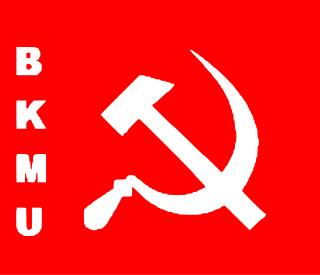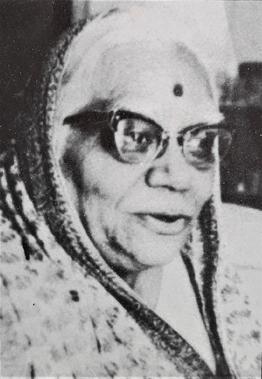Related Research Articles

Varahagiri Venkata Giri, better known as V. V. Giri was an Indian politician and activist who served as the president of India from 24 August 1969 to 24 August 1974. He also served as the vice president of India from 13 May 1967 to 3 May 1969. He was the first president to be elected as an independent candidate. He was succeeded by Fakhruddin Ali Ahmed as president in 1974. After the end of his full term, Giri was honoured by the Government of India with the Bharat Ratna in 1975. Giri died on 24 June 1980.

The National Union of Rail, Maritime and Transport Workers is a British trade union covering the transport sector. Its current President is George Welch and its current General Secretary is Mick Lynch.

Trade unions in India are registered and file annual returns under the Trade Union Act (1926). Statistics on trade unions are collected annually by the Labour Bureau of the Ministry of Labour, Government of India. According to the latest data released for 2012, there were 16,154 trade unions with a combined membership of 9.18 million, based on returns from 15 states out of a total of 28 states and 9 union territories. The trade union movement in India is largely divided along political lines and follows a pre-Independence pattern of overlapping interactions between political parties and unions. The net result of this system is debated, as it has both advantages and disadvantages. According to data submitted by various trade unions to the Ministry of Labour and Employment as part of a survey, INTUC, with a combined membership of 33.3 million, emerged as the largest trade union in India as of 2013.

Bharatiya Lok Dal was a political party in India. The BLD or simply BL was formed at the end of 1974 through the fusion of seven parties opposed to the rule of Indira Gandhi, including the Swatantra Party, the Samyukta Socialist Party, the Utkal Congress and the Bharatiya Kranti Dal. The leader of the BLD was Charan Singh.

The Praja Socialist Party, abbreviated as PSP, was an Indian political party. It was founded in 1952 when the Socialist Party, led by Jayaprakash Narayan, Rambriksh Benipuri, Acharya Narendra Deva and Basawon Singh (Sinha), merged with the Kisan Mazdoor Praja Party led by J. B. Kripalani.

The All India Trade Union Congress (AITUC) is the oldest trade union federation in India. It is associated with the Communist Party of India. According to provisional statistics from the Ministry of Labour, AITUC had a membership of 14.2 million in 2013. It was founded on 31 October 1920 with Lala Lajpat Rai as its first president.

Bharatiya Khet Mazdoor Union which translates to 'Indian Land Workers Union' is a trade union of agricultural labourers in India. BKMU is politically tied to the Communist Party of India (CPI). BKMU is independent from both the main trade union central of CPI, the All India Trade Union Congress, as well as the farmers' organisation of CPI, the All India Kisan Sabha.

The Hind Mazdoor Sabha (HMS) was formed by the Socialists in 1948 but has little real connection with the Socialist Party. It is one of the least political and most pragmatic trade-union federations in India. The HMS is affiliated with the International Confederation of Free Trade Unions.

Basawon Singh or Basawan Singh, also known as Basawon Sinha, was an Indian independence activist and a campaigner for the rights of the underprivileged, and industrial and agricultural workers.
The 1974 railway strike in India was a major strike by the workers of Indian Railways in 1974. The strike lasted from 8 to 27 May 1974. The 20-day strike by 1.7 million workers is the largest recorded industrial action in the world.
Elections were held in March 1952 for the Bihar Legislative Assembly. There were 276 constituencies with 50 of them being two-member constituencies. The Indian National Congress (INC) stormed into power. Shri Krishna Singh became the first elected Chief Minister of Bihar and Dr. Anugrah Narayan Sinha became the first Deputy Chief Minister cum Finance Minister of the state.

Maniben Kara (1905-1979) was an Indian social worker and trade unionist. She was a founder member of the Hind Mazdoor Sabha and served as its president. She was honoured by the Government of India in 1970 with Padma Shri, the fourth highest Indian civilian award.
Shibban Lal Saxena was a former Indian politician and freedom fighter. He was son of late Shri Chhotey Lal Saksena and his uncles were late Shri Shyam Sunder Lal Saksena and late Shri Ram Sunder Lal Saksena. He was born on 13 July 1906 to a wealthy Kayastha Family at Agra.

Sebastian Cyril Constantine Anthony Pillai, also spelled S.C.C. Anthonypillai, was a Ceylonese-Indian trade unionist, politician and Member of Parliament.
Sanjeev Singh is an Indian politician and a member of the Bharatiya Janata Party. He was an elected member of the Jharkhand Legislative Assembly from the Jharia constituency in Dhanbad district. In the 2014 Jharkhand Assembly Elections. He is currently serving a sentence in prison.
All India Port and Dock Workers Federation (AIPDWF), founded in 1949 is the largest trade union representing workers at India's 12 major government-owned ports. It is affiliated with the socialist trade union center Hind Mazdoor Sabha.
Sant Singh Yusuf was an Indian trade unionist and politician.

Placid D'Mello was an Indian trade union leader. He was the founder of the Brihanmumbai Municipal Mazdoor Union (MMU), BEST workers union and All India Port and Dock Workers Federation.
References
- ↑ Dhoot, Vikas (29 June 2013). "Indian Railways headed for first indefinite strike in October". The Economic Times ..
- 1 2 Subba Rao, P (1997). "A perspective on human resource management in Indian Railways". In Venkataraman, CS; Varma, Anil (eds.). Challenge of Change: Industrial Relations in Indian Industry. Allied Publishers. p. 500. ISBN 9788170236511 . Retrieved 16 July 2017.
- 1 2 "List of Federations". Hind Mazdoor Sabha . Retrieved 7 July 2017.
- ↑ Bandopadhyay, Sekhar (2009). Decolonization in South Asia: Meanings of Freedom in Post-independence West Bengal, 1947-52. Routledge. ISBN 9781134018239 . Retrieved 4 August 2017.
- 1 2 Bear, Laura (2007). Lines of the Nation: Indian Railway Workers, Bureaucracy, and the Intimate Historical Self. Columbia University Press. p. 231. ISBN 9780231140027 . Retrieved 4 August 2017.
- ↑ "Looking back at anger". The Hindu . 6 January 2002. Archived from the original on 27 August 2002. Retrieved 7 July 2017.
- ↑ Sridhar, V (15 September 2001). "Chronicle of a strike". Frontline . Retrieved 5 June 2018.
- ↑ "Chronicle of a strike". Frontline. Archived from the original on 19 February 2011. Retrieved 11 February 2012.
- ↑ "India: Strangulating Strike". Time . 20 May 1974. Archived from the original on 22 December 2008. Retrieved 11 February 2012.
- ↑ Sherlock, Stephen (14 October 1989). "Railway Workers and Their Unions: Origins of 1974 Indian Railways Strike". Economic and Political Weekly . 24 (41): 2311–2322.
- ↑ Dhoot, Vikas (6 December 2007). "For first time, railwaymen vote to elect unions, derail Left". The Indian Express . Retrieved 16 July 2017.
- ↑ Menon, Sudha (13 November 2007). "Railway Unions Get Ready for First, Critical Elections in 154 Years". Livemint. Retrieved 16 July 2017.
- ↑ "Compilation of Results - SBE_2013" (PDF). AIRF. Retrieved 16 July 2017.